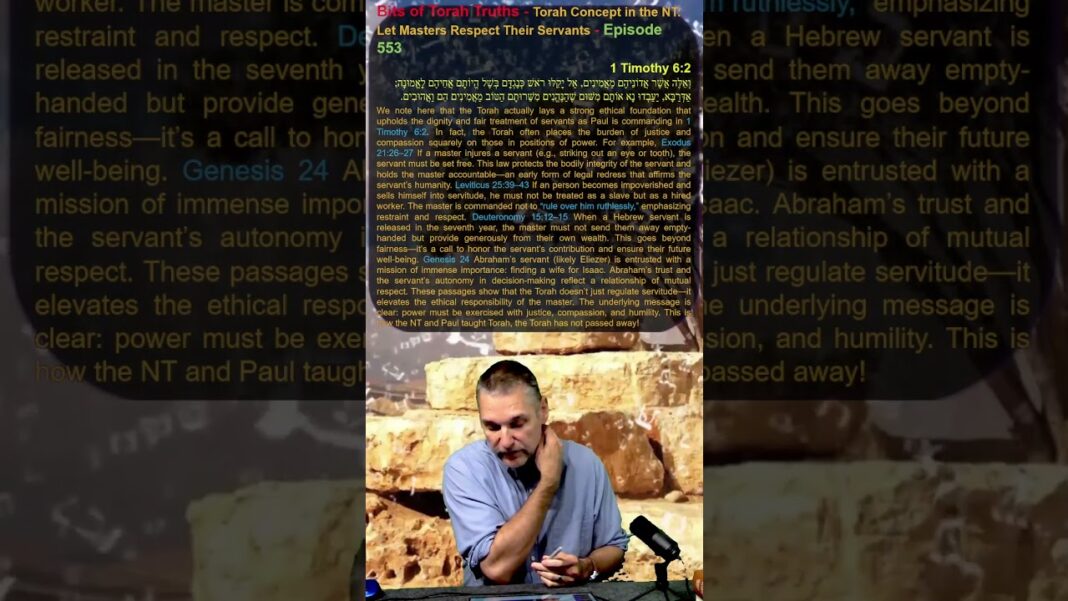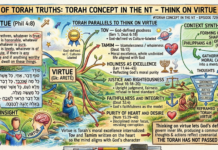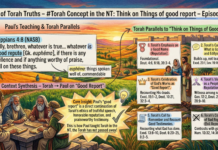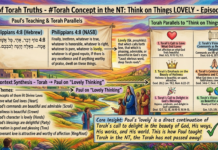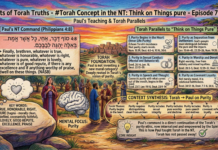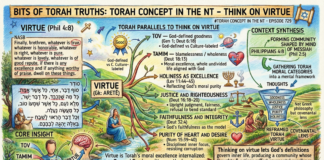Bits of Torah Truths – Torah Concept in the NT: Let Masters Respect Their Servants – Episode 553
1 Timothy 6:2
וְאֵלֶּה אֲשֶׁר אֲדוֹנֵיהֶם מַאֲמִינִים, אַל יָקֵלּוּ רֹאשׁ כְּנֶגְדָּם בְּשֶׁל הֱיוֹתָם אֲחֵיהֶם לָאֱמוּנָה; אַדְּרַבָּא, יַעַבְדוּ נָא אוֹתָם מִשּׁוּם שֶׁהַנֶּהֱנִים מִשֵּׁרוּתָם הַטּוֹב מַאֲמִינִים הֵם וַאֲהוּבִים.
#torah #torahwisdom #torahtruth #torahforlife #torah4you #torahtruth
1 Timothy 6:2
6:2 Those who have believers as their masters must not be disrespectful to them because they are brethren, but must serve them all the more, because those who partake of the benefit are believers and beloved. Teach and preach these principles. (NASB)
https://www.matsati.com/index.php/category/bits-of-torah-truths/
We note here that the Torah actually lays a strong ethical foundation that upholds the dignity and fair treatment of servants as Paul is commanding in 1 Timothy 6:2. In fact, the Torah often places the burden of justice and compassion squarely on those in positions of power. For example, Exodus 21:26–27 If a master injures a servant (e.g., striking out an eye or tooth), the servant must be set free. This law protects the bodily integrity of the servant and holds the master accountable—an early form of legal redress that affirms the servant’s humanity. Leviticus 25:39–43 If a person becomes impoverished and sells himself into servitude, he must not be treated as a slave but as a hired worker. The master is commanded not to “rule over him ruthlessly,” emphasizing restraint and respect. Deuteronomy 15:12–15 When a Hebrew servant is released in the seventh year, the master must not send them away empty-handed but provide generously from their own wealth. This goes beyond fairness—it’s a call to honor the servant’s contribution and ensure their future well-being. Genesis 24 Abraham’s servant (likely Eliezer) is entrusted with a mission of immense importance: finding a wife for Isaac. Abraham’s trust and the servant’s autonomy in decision-making reflect a relationship of mutual respect. These passages show that the Torah doesn’t just regulate servitude—it elevates the ethical responsibility of the master. The underlying message is clear: power must be exercised with justice, compassion, and humility. This is how the NT and Paul taught Torah, the Torah has not passed away!
